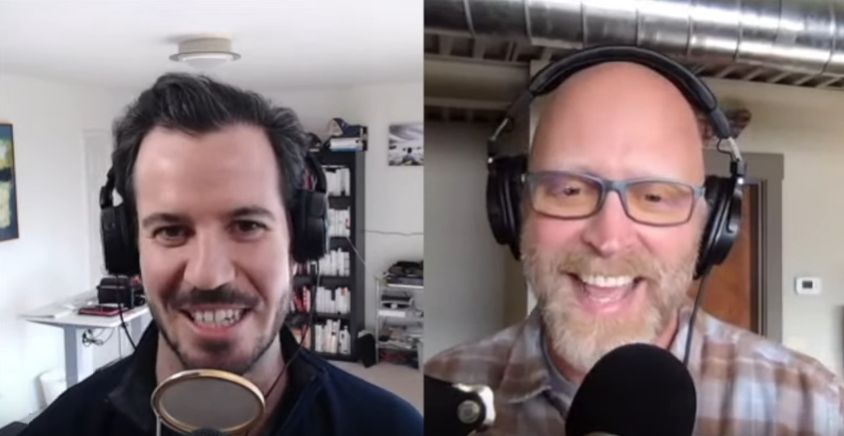https://www.youtube.com/watch?v=bxW1iASwzxQ?start=1371
During his recent interview with Tobias, Jesse Felder, hedge fund manager and Founder of The Felder Report Newsletter discusses the philosophical problem with passive investing whereby indexes systematically underweight owner-operated companies and systematically overweight companies. Here’s an excerpt from the interview:
Jesse Felder: It’s interesting to me that these indexes now, that they’re float adjusted, systematically underweight owner-operated companies and systematically overweight companies that are not owner-operated. To me, that’s a potential problem with passive investing today. Also, people don’t necessarily appreciate.
Tobias Carlisle: That’s a very interesting point, I hadn’t thought about that before. But that’s a fascinating point.
Jesse Felder: Something that Steve Bregman, I had on my podcast a couple years ago, and he was … I don’t think people appreciate the fact that it was 2004 or five when they actually changed the index methodology from just cap-weighted to float-adjusted cap-weighting. Still they use the track record of the S&P 500, as if it was just cap-weighted prior. But today it’s not cap-weighted. It’s float-adjusted cap, and so … To me, philosophically too, that goes exactly opposite of what I’m trying to do. So you have companies where there’s massive insider buying and they’re reducing the float, so the index has to underweight those companies to some degree.
Jesse Felder: And companies with massive insider selling, they’re expanding the float and so the index is now saying, “We’re going to buy more of these where there’s insider selling, and we’re going to buy less of these where there’s insider buying.” The greatest example of this is probably Intel.
Jesse Felder: Go look at Intel, a stock chart of Intel. You look at the chart from when it went public, when Andy Grove was running it and had a third of the shares personally, to 2000. The stock went up 30% a year for that period. Andy Grove retires as chairman and CEO, sells all of his stock, and Intel today is still down 30% from its 2000 high.
Jesse Felder: So you look at that period of the mid-80s or whatever it is to 2000, and you go, “Okay, this is what an owner-operated company does.” Right? This is going to make me 30% a year, and I’ve lost money in the 20 years since it’s been a non owner-operated company. The way the passive methodology now works is that entire time Andy Grove owned a 30% of the shares, we’re going to underweight Intel, because of the float.
Jesse Felder: Soon as Andy Grove goes and sells all of his stock, boom. Now we’re going to overweight Intel, because the float just went up a ton. So to me, it’s a philosophical problem with passive that a lot of people don’t appreciate.
Tobias Carlisle: It’s a perverse incentive. You’re incentivized to issue more stock that’s not held by the owner.
Jesse Felder: Right.
Tobias Carlisle: Held by the main shareholder.
The Acquirers Podcast
You can find out more about Tobias’ podcast here – The Acquirers Podcast. You can also listen to the podcast on your favorite podcast platforms here:
For all the latest news and podcasts, join our free newsletter here.
Don’t forget to check out our FREE Large Cap 1000 – Stock Screener, here at The Acquirer’s Multiple:



